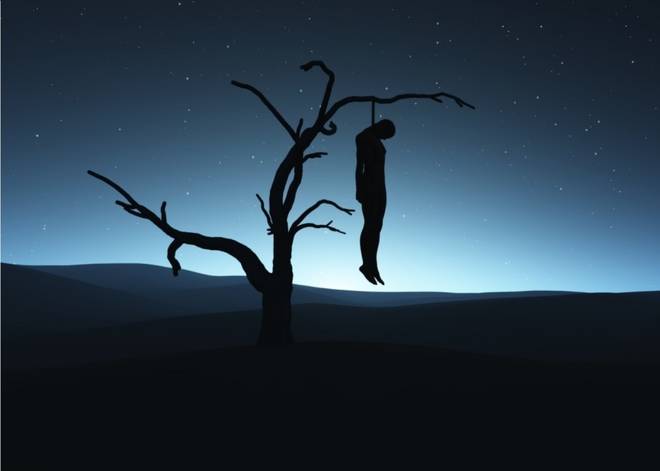By Prince Ejeh Josh & Onubuleze Ukamaka Tonia.
More youths are likely to die. Many more are willing to take their lives. In the face of the tumultuous reality of Nigeria today, many have seen death as their best consolation. Indeed, death is lurking everywhere, snatching our young ones from us.
Over the past months, Nigeria has recorded hundreds of suicide-related deaths among its youth. This ugly incident continues to increase unabatedly each passing day. Youths are taking consolation in insecticides, drugs such as codeine, tramadol, marijuana, alcohol, and other related harmful substances occassioned by frustration, but many parents feel unperturbed about these challenges. They seem not to see the invading plague. They pretend nothing is happening under the mask of religion. They are ashamed sharing or talking issues bordering on suicide just to avoid public ridicule or stigmatization. Good enough, suicide itself helps in exposing such pretentious character.
Today, suicide is a trending issue. It is becoming part of the system. Sadly, most of those committing suicides are either secondary school students, university undergraduates or graduates of higher institutions. This shows they are between the ages of 15 and 35. Should suicide be finally accepted into our lexicon and allowed to feed on the flesh of our cultures, then, there is fear that by 2030, Nigeria may no longer have a generation of youth.
Suicide was once a taboo in the Nigerian society. All this has, however, radically changed. It is, today, a trending topic amongst our new generation of youths. It is really understandable. Things have changed. Things have fallen apart. That traditional ties bonding parents and children are now missing. The first intimacy enjoyed by children in the years past is no longer there. The wave of civilisation has eroded it.
In recent times, there are now lots of social upheaval and psychological alienation in the Nigerian society more than any time in the past. Social isolation, abandonment, lack of parental care, abuse etc are now prevalent in our modern society borne out of broken homes, marital crises, hardships and health challenges. All these are serving as catalysts for suicides.
In the same vein, the harsh economic challenges have resulted in massive loss of jobs and thrown millions into the over-bloated labour market with the labour force wasting away in idleness. Every year, educational institutions in and outside the country churn out large numbers of Nigerian graduates in different fields. Calamitously, these promising youths sooner than later, find themselves idling away in their parents’ compounds after huge funds had been committed towards their educational pursuit. Indeed, experts in the country are worried about the current situation of things and have warned that Nigeria would likely witness increase in suicide rates because of the sad reality of the failed system.
As the World Health Organisation succinctly captures the troubling waters of suicides: an estimated 800,000 people die by suicide annually and Nigeria now ranks among the top suicide prone countries. According to the World Population Review, Nigeria, with a crude suicide rate of 9.5 per 100, 000 population ranks 10th in Africa and 67th in the world. This is also understandable; Nigeria having garbed itself as a poverty capital of the world under this failed administration.
At this juncture, a pertinent question arises, and if answered correctly, will help tackle this plague: Is there anything demonic, spiritually projected evil or taboo about suicide? Or, as the superstitious belief goes, are village people responsible for inducing someone to commit suicide? A negative answer will be returned with the following arguments. Suicide is commonly associated with depression, state of despondency or hopelessness, stigmatization, social isolation, hardships, abandonment, and serious psychological problems.
Nietzsche, a celebrated atheist, once argued, and rightly, we supposed, that the thought of suicide induces a great consolation to the victim. He added; by means of it, one successfully gets through many bad nights of frightening trauma and extreme difficulties.
Just as Karl Marx saw Religion as the opium of the masses, it is strongly argued here that suicide victims saw it as their last hope of relief.
A psychologist, Harold, was to further affirm this view by arguing that the pain of depression and meaningless life is sometimes so great that the only hope of ever escaping the horrible feelings lies in the possibility of ending life itself.
All said, the question now is, whether parents have any role to play in order to prevent this hydra-headed monster. A positive verdict will be returned. Today’s youths are susceptible to different influences spurning from contradicting and distorting ideas. The internet has opened them to a new world; an imaginary world where everything is perfect. A world that makes them rejected and dejected if they don’t belong to the trend. A world of riches. A world of great wealth and economic boom. A world capable of isolating them from reality to a state of hallucinations and schizophrenia. A world of depression.
More so, the gap between the haves and the have-nots, the reckless display of luxuries by political leaders, most of whom were even “fish brains” back then in school, and the unaccounted plush life of religious leaders and their sacred family members who place themselves above worshippers and members of the society with undignified sense of aloofness are all pointers that, death, is indeed, a better consolation. After all, a bottle of sniper that costs less than a hundred Naira will do the job!
Hence, parents have a greater role to play in putting an end to this sad story. Their children need their presence, affection, warmth embrace more than outsiders. Parents are not to wait for any insensitive government to do their job for them. Expecting this failed government to come up with policies, create jobs, or comfort our youth is not only disastrous but fatal as well. Government has nothing to lose more than parents have everything to lose in the event of suicide of the latter’s children.
The primary institution of every society is the family. Children subjected to abuse of neglect, abandonment, lack of parental care and physical presence of their parents are twice prone to suicidal thoughts than those with parental care. Parents, according to psychologists, understand their children’s behaviour better than outsiders. It is, therefore, advised that they must cautiously look out for any change in behavioural pattern in their children, and effectively tackle the issue bothering them.
In addition, children are more open to their parents than to outsiders. Constant discussions, it is admonished, are essential to understanding their bottled up frustration which might be waiting to explode like a ticking time bomb through suicide if not timously attended to.
Wealthy parents should not rejoice yet. Not yet. Poverty is not the only factor triggering suicides. Money is also not the answer to everything. Material wealth may not buy affection and happiness. Substituting money with that personal care, close relationship and parental guidance your children need from you may boomerang with fatal consequences. Spending a quality time with your kids and grown up children may have a huge impact on their psychological development. It is a natural relief. It shows that, despite their abandonment by the society, some people still care for them. Tell them that you care before suicide will do that for you.
On a final note, parents must feel free and encourage their wards to discuss anything with them. Discuss their health, sexual orientation, education, life-style, future, worries, fears etc with them. Don’t shy away from any issue on the pretext of a Christian or religious family. Refer them to psychologists for counseling where need be. Suicide is ever ready to effectively do the discussion with your children, our youths, our future, and the future leaders of tomorrow with a simple but effective solution: sniper!
___________________________________
DISCLAIMER: All views expressed on our opinion page are those of the writer and do not represent the position of INSIDER or any of its reporters/editors.



Interesting